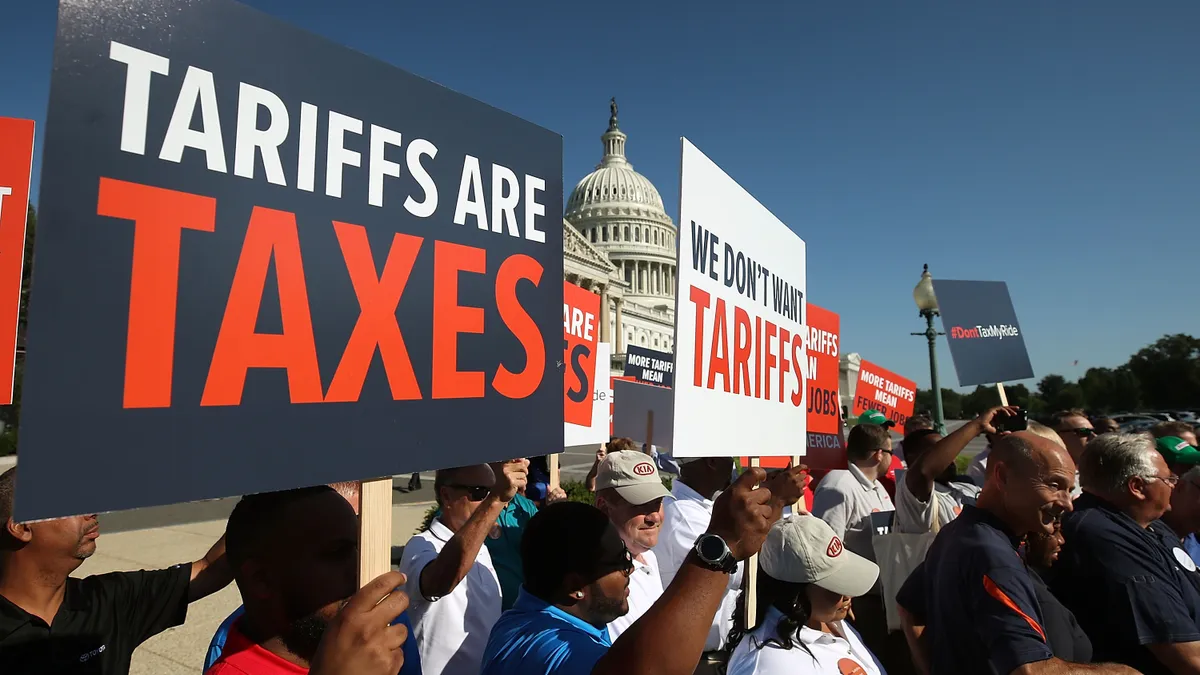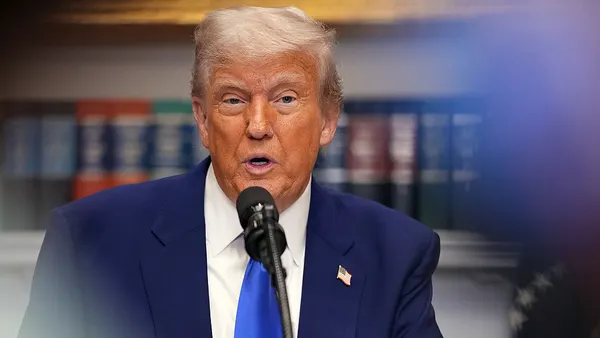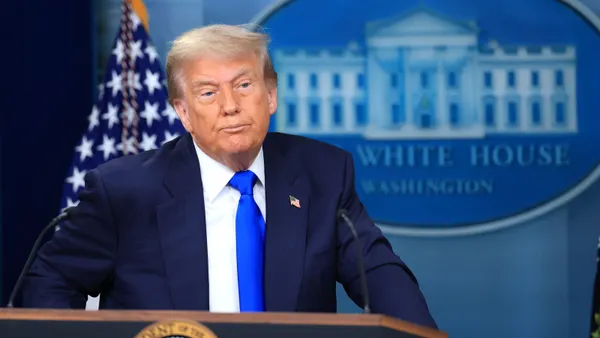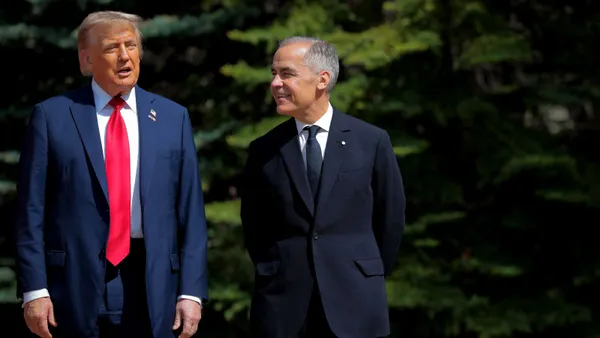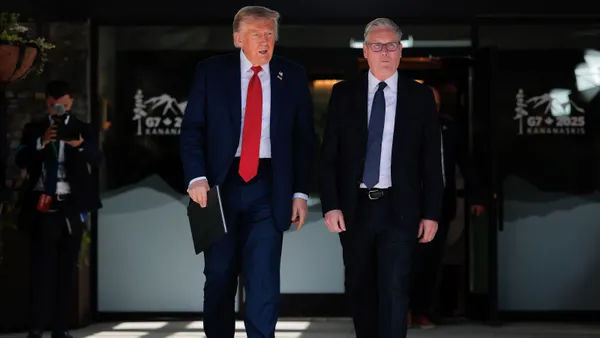Dive Brief:
- The Biden administration opted to extend exclusions on tariffs for hundreds of products from China just days before they were set to expire on Dec. 31.
- “The extension will enable the orderly review of the exclusions consistent with statutory factors and objectives to identify in which cases additional time would enable shifts in sourcing to the United States or third countries,” the Office of the U.S. Trade Representative said in a Dec. 26 statement.
- The administration extended the tariff exclusions — on 429 products in all — to May 31. Comments on the exclusions are set to open on Jan. 22 and close on Feb. 21.
Dive Insight:
Both the Trump and Biden administrations have exempted certain products from the Section 301 tariffs slapped on imports from China starting in 2018. The exclusions have been extended multiple times since then, as the tariffs have continued under both administrations.
The exclusion extensions include 77 medical items exempt from the tariffs since 2020 because of COVID-19-related concerns, according to a Federal Register Notice from USTR.
The Biden administration decided to seek comments on the extensions after receiving public comments related to the USTR’s ongoing “four-year review” of the Section 301 tariffs launched in May 2022. The first phase of the review invited perspectives from domestic industries that have benefited from the tariffs.
In extending the exclusions in December, USTR also noted that the extensions would “facilitate the alignment of further decisions on these exclusions with the ongoing four-year review.”
That drew questions from some in the industry. In an emailed public statement, American Apparel & Footwear Association President and CEO Steve Lamar asked why the administration is “opening up a new comment process on these exclusions and why has it so far declined to announce the results of the four-year review, which is itself way overdue and which already included the current exclusions in its scope.”
Lamar also took issue with the Biden administration’s timing in the extension. “We are pleased to see the Biden Administration renew the previously approved exclusions, although it is extremely frustrating that it has once again waited until the eleventh hour to extend them,” Lamar said.
AAFA and many other industry groups that rely on imports from China have opposed the tariffs from their beginning under the Trump administration.
The tariffs added many hundreds of millions of dollars a year in costs on apparel, footwear and travel products, with financial burdens falling disproportionately on lower-income consumers, according to a 2023 study released by major industry groups. A U.S. International Trade Commission study, also released last year, found that the tariffs did lift domestic production in targeted areas but downstream industries that rely on imports were hurt.
In his most recent statement, Lamar said, “During a time of persistent inflation, we should be looking for ways to reduce tariff burdens (which largely get passed along to consumers in the form of higher prices) rather than delay relief.”



